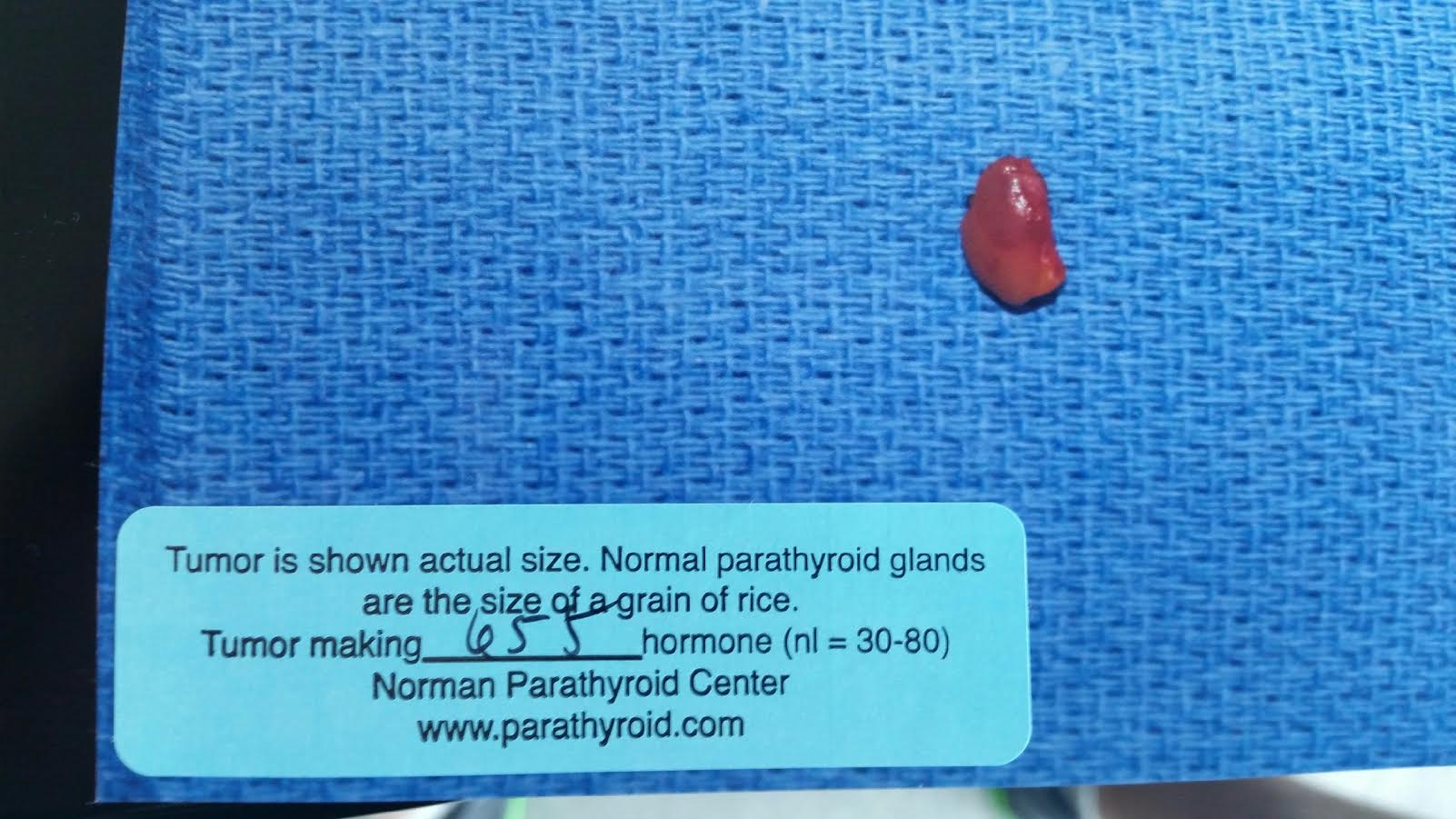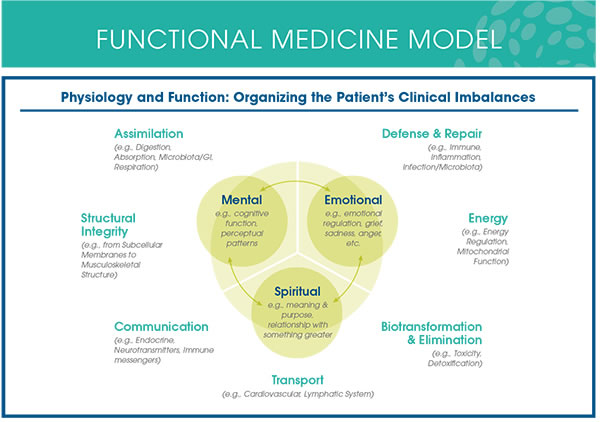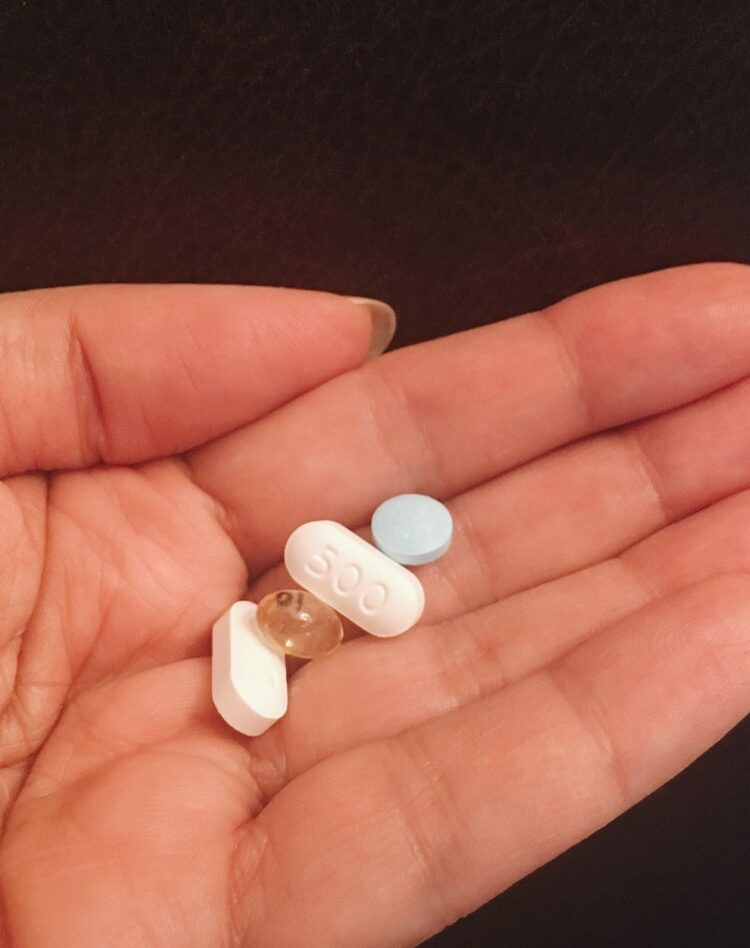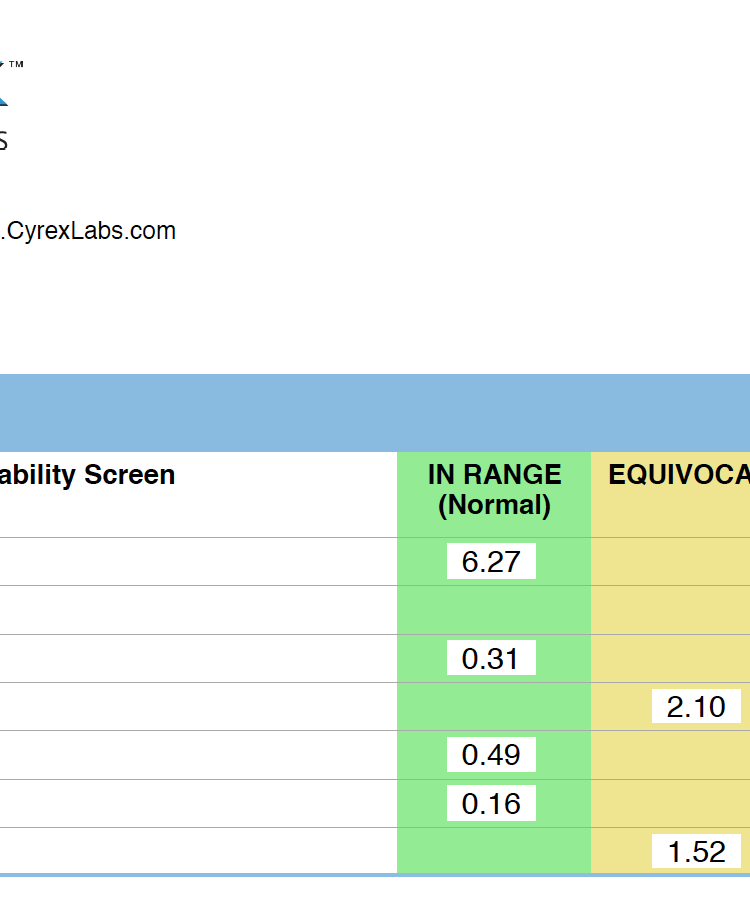The Parathyroid glands are 4 small glands of the endocrine system which are located in the neck behind the thyroid.
They secrete parathyroid hormone (PTH) and are essential organs for the regulation of calcium and phosphate metabolism.
They measure the amount of calcium in the blood every minute of every day… and if the calcium levels go down a little bit, the parathyroid glands recognize it and make PTH, which goes to the bones and takes some calcium out (makes a withdrawal from the calcium vault) and puts it into the blood.
When the calcium in the blood is high enough, then the parathyroids shut down and stop making PTH.
They are necessary to sustain life and maintain homeostasis, The clinical picture of some disorders associated with abnormal parathyroid hormone secretion and receptor action is sometimes complicated by coexisting abnormalities.
Hyperparathyroidism:
The single major disease of parathyroid glands is over-activity of one or more of the parathyroids which make too much parathyroid hormone, causing a potentially serious calcium imbalance (too high calcium in the blood). This is called hyperparathyroidism.
This woman gave me permission to use her picture and disclose details about her history.
This is the tumor removed from the parathyroid gland. As you can see here, her parathyroid was putting out 10 times the amount of PTH that a normal parathyroid would!
She has a history of Hashimoto’s autoimmune thyroid, sub-optimal vitamin D status even though she takes 5,000 IUs every day, and chronically iron anemic (which I have tested further the markers discussed in my last post about the anemia of chronic disease and anemia of inflammation).
She was not iron anemia due to a deficiency of iron, but because of inflammation or chronic disease.
When the doctors looked at her thyroid they saw no shredding of thyroid tissue from antibodies (we have her rubbing Glutathione cream over her thyroid for years) and she had no nodules (which is common with Hashimoto’s, we have her taking 200 mcg of Selenium).
The Importance of Functional Medicine Ranges:
When you have blood work done through LabCorp, Quest, or any other labs, you have to ask “Where do they get their lab ranges from?” Each lab has its OWN lab ranges.
The labs get their ranges from taking the average of all the sick people who go to the lab. The lab ranges are ever-changing as well.
About 30 years ago, a group of doctors got together, and realized that people were having symptoms and feeling crummy despite being “within range.”
These doctors decided to look at the blood tests of people who were optimally healthy and optimally functioning. Thus, functional medicine ranges were born.
With functional medicine ranges, they RARELY change. I’ve been working in this wellness center for 6 years and only ONCE have I seen thyroid hormone lab ranges changes (and that was December of 2016).
However, I have noticed that LabCorp and Quest have changed the ranges for cholesterol, sodium, potassium, blood sugar, and hormones at least 5 times.
Differences Among Lab Ranges:
If you see here on the picture, THIS particular parathyroid institute who removed her tumor has a lab range for PTH of 30 – 80. LabCorp has a range for PTH of 15 – 65 (no age specific range) with Calcium 8.6 – 10.2 , Quest has a more age and gender specific range for PTH 14 – 64 for >17 years and Calcium ( gender and age specific ranges).
There are differences among lab ranges depending upon which lab you go to. But functional ranges rarely ever change.
The Bottom Line:
Tests to check:
Calcium, serum
PTH, Intact
If you have consistently had elevated calcium >10.1, ask your doctor to check PTH to rule out a parathyroid tumor. The majority of these growths are non-cancerous.
According to the Norman Parathyroid Center, these are the following symptoms that can occur with a growth on the parathyroid gland.
Symptoms of Parathyroid Disease (Hyperparathyroidism):
- Loss of energy — don’t feel like doing much. Tired all the time. Chronic fatigue. (#1 symptom)
- Just don’t feel well; don’t quite feel normal. Hard to explain but just feel kind of bad.
- Feel old. Don’t have the interest in things that you used to.
- Can’t concentrate, or can’t keep your concentration like in the past.
- Osteoporosis and Osteopenia.
- Bones hurt; typically it’s bones in the legs and arms but can be most bones.
- Don’t sleep like you used to. Wake up in middle of night. Trouble getting to sleep.
- Tired during the day and frequently feel like you want a nap (but naps don’t help).
- Spouse claims you are more irritable and harder to get along with
- Forget simple things that you used to remember very easily (worsening memory).
- Gastric acid reflux; heartburn; GERD.
- Decrease in sex drive.
- Thinning hair (predominately in middle aged females on the front part of the scalp).
- Kidney Stones
- High Blood Pressure (sometimes mild, sometimes quite severe; up and down a lot).
- Recurrent Headaches
- Heart Palpitations (arrhythmias). Typically, atrial arrhythmias.
- Atrial Fibrillation (rapid heart rate, often requiring blood thinners and pacemakers).
- High liver enzymes
- Development of MGUS and abnormal blood protein levels.
Most people with hyperparathyroidism will have 5–6 of these symptoms. Some will have lots of them. A few people will say they don’t have any. In general, the longer you have hyperparathyroidism, the more symptoms you will develop.
This particular woman did not have any symptoms at all. So many of these symptoms can be attributed to many other things. So it’s best to TEST, don’t GUESS.
More Helpful Blog Posts on Preserving Your Health
- Dissolve Breast Cysts With Frankincense Oil
- Hypertrophic Cardiomyopathy: An interview with the 27-year-old who’s heart stopped for 4 minutes
- Tonsil Stones Can Be A Manifestation Of Dairy Sensitivity
- Mushrooms Lower Thyroid Antibodies: Hashimotos & Graves Disease
- GI Maps Stool Test: What Your GI Doctor May Be Missing
- The Most Important Test For Alzheimer’s, Stroke & Heart Attack
Sources:






